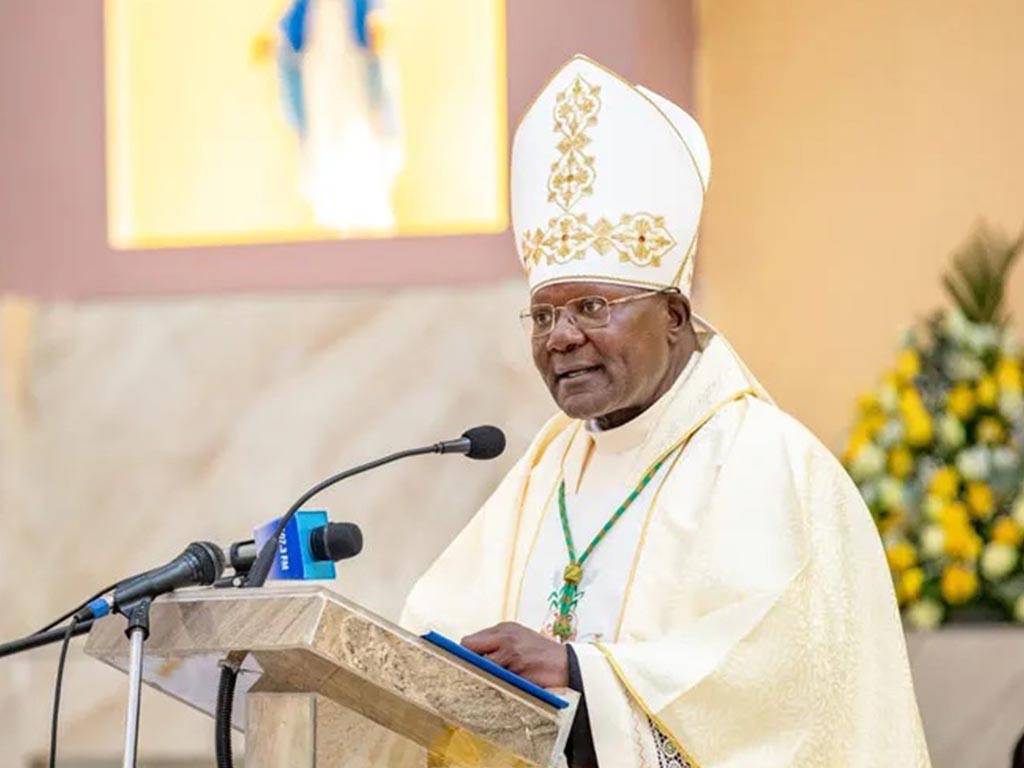Ngong’ Diocese Bishop John Oballa, [Photo: AIC Africa]
Interfaith religious leaders across Africa under the auspices of Caritas Africa says there is a need for Africa Nations to find a new debt restructuring model that will enable the debt-ridden nations to achieve development.
The Catholic clergy are calling on government and debt creditors that include multilateral and bilateral lenders to enter into an win-win agreement in loan financing arguing that most nations fear not achieving the 2030 Sustainable Development Goals.
”These crises are a result of social justices issues at the international and domestic levels linked to: tax injustice in globalisation, trade imbalance between donor and recipient countries and gaps in management of public finance at the domestic level. As a result the situation has intensified poverty, inequality, and governance challenges in the continent and set back progress on attainment of sustainable development goals by 2030,” the statement read.
Speaking in Nairobi, Ngong Diocese Bishop John Obala says African leaders should take advantage of the upcoming regional summits to address the multiple crises bedeviling African nations in line to debt servicing.
Bishop Oballa said the Head of states and government could consider a raft of proposals the African leaders including a debt reduction process, responsible lending and borrowing, risk sharing and rechanneling of special drawing rights to lighten the burden shouldered by nations over debt payments
”We are aware that in next few days and months, Heads of State and Finance Ministers will meet on several occasions. The African Climate Summit, the G20 New Delhi Summit, the UN General Assembly and the World Bank-IMF Annual Meetings (Marrakesh) are opportunities to influence these processes and take urgently needed actions that can help Africa,” Oballa commented.
The African faith leaders have also implored governments to scale down theft of public resources and corruption and ensure be equality between taxpaying and to service representation to Africans.
”African governments need to take critical responsibility to eradicate theft of public funds and corruption of all types and to ensure public finances address the needs of its citizens. Increased money transfers should go hand in hand with improved policies and practices for their use. The governance dimension of all stages in the lending process is crucial. Being public institutions, the international financial institutions have members accountable to their taxpayers. They have a responsibility to secure inclusive and participatory processes at the borrower level to decide on lending priorities and monitor that funds are used for their intended purpose.”
The men of faith asserted that they are cognizant of the geopolitical crises like the Ukraine war and the Niger coup, Climate issues and the Covid19 Pandemic which contributed immensely to nations entering into debt holes.
The leaders, representing a host of African nations that owe collectively more than $1.1 trillion in external debt, and 25 of them in deep debt crises said Africa need large investments that sustains life in Africa and elsewhere, during a window that is rapidly closing.

